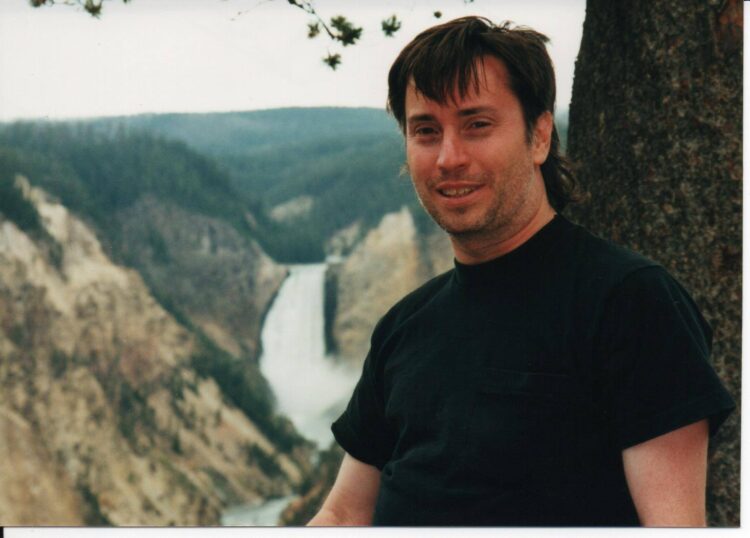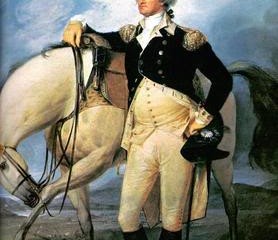Men of Value Interview: Kevin Spivey

When I was first approached about conducting this next interview, I was hesitant, because it was suggested that I do it about me. When the publication is about men of value and the interviews are supposed to be about highlighting men and their achievements and contributions, I found it to be a complicated fine line between personal awareness and egotism. After battling through an internal debate addressing what qualifies me as a man of value, I came to a conclusion I could be at peace with; we are all people with value, a bigger question was how.
After spending some time contemplating the answer, it came to me. I believe it was from a Dale Carnegie book. The principle is simply to find a need and fill it. And a great part to that is we all have needs so there shouldn’t be any difficulty finding someone who needs something. The tricky part is to offer yourself in filling their needs.
I have spent more than 25 years working as a human resources manager. That position straddles the line between being a manager for the business and an advocate for the employees; or at least that was the way I saw it. Over those years I came across many times when an employee was struggling on the job and sometimes at the point of losing their job. The years taught me to take a deeper look at the why; what was the problem behind the problem? Most of the time they had a need; car broken down, family member or themselves were sick, struggling with their finances and so on and so on. In time, I took Mr. Carnegie’s principle to heart. I started to try and do anything I could to help them with their need. Sometimes I could, but there were many times there was little I could do. Even at those times it seemed to help them that I was at least listening to them and trying to help.
My perspective on the principle to find a need and fill it was solidified five years ago when my wife was diagnosed with leukemia. It wasn’t about me filling her needs, it was about all the people that helped take care of my needs. There was the answering service operator who despite having the directive to not contact my doctor while he was away, did it anyway. There was my boss who worked with me so I could be at the hospital as much as possible; that included my peers who took on some of my workload. There were all the people who brought me dinners or went shopping for me or took care of our pets. There were those who looked after my 93-year-old mother who lived alone. Then there was my neighbor that mowed our lawn and he wasn’t even aware that my wife was sick. There was the lady who cuts my hair that texted almost everyday offering her support. Then there were the nurses who stayed around after their shifts just to talk and the aid who gave us free coupons for a Chicago restaurant so we didn’t have to eat the hospital food. There was also the nurse who walked all the way to the parking garage about a block away on a cold and rainy night to take care of an issue I had with them. I had needs, many of them, and there were many people who took care of those needs, and me. They were all people of value.

When I do these interviews, I center them around a series of questions for the purpose of getting insight from their personal experiences and input on how they believe that their values were developed during their life. This has been a good exercise for me in helping me look back with gratitude to those who have inspired me to be a better person.
What do your values look like in terms of faith, family, and how do you define freedom?
The steps I took to discover my faith began while I was growing up in a Catholic household. We weren’t overly religious, but we were faithful. I was given freedom by my parents to question God and the beliefs I was taught. I asked a lot of questions and challenged God along the way. He always answered my questions and challenges. At some point you don’t need to ask anymore, you just have belief and faith.
On my life’s journey towards maturity (I’m still travelling) I have learned about the value we all have by paying attention to those around me who give of themselves. My family, especially my wife, have all been great examples for me. Going through my wife’s cancer I came to a stark realization of all I have to be grateful for. I try to make it a regular practice to reflect on that feeling. Recognizing that is how I want to live means I don’t need to figure it out, I just need to model their actions. That gives me all the freedom that I need.
How have your values determined your own path in life?
During my early years after high school, I moved around a bit. I lived in Boston, Atlanta, Chicago, and St. Louis. I also travelled to Colorado every chance I could. I loved each of those places and could have been happy at any of them. But I valued my relationship with my parents. They were getting older and the rest of my siblings did not live in the area. It wasn’t that my parents couldn’t take care of themselves, my mom lived at home by herself until she was 95. My parents went beyond the scope of mom and dad, they were my best friends. That meant more to me than a job or a geographic location. I don’t regret any decision to move back to my home town and stay, after all, I met my wife there.

Who do you look to for life-examples, inspiration and guidance?
I believe that you can find inspiration almost anywhere, if you are paying attention. In addition to my family, there is a journalist on TV that regularly does stories of people/kids who go above and beyond even the extraordinary. His name is Steve Hartman and he usually has a story on the CBS Sunday Morning Show. His ability to find the stories that he does gives me a lot of hope that there are people like this everywhere and goodness still does exist.
Another person that has given me a lot of inspiration and insight is Dr. Jadgish Dave. He is a professor that I met years ago and I have had the opportunity to spend some quality time with. He is an unassuming man, yet a man of great wisdom. He shares that wisdom in ways simple to understand. He doesn’t preach, and he is a master of getting you to discover your own answers. He is near 100 years old now and I haven’t seen him since the beginning of the pandemic, but at that time he was still very active and traveling all over the country to speak. I would go and listen to him anytime I could and I didn’t even care what topic he was talking about; I could learn from any of his talks. I admire him and I would like to pattern my life to be so wise and active when I reach that age.
Where do you think the nation is going?
It feels like were heading down a dangerous and harmful path. It feels like to me that we as a nation are becoming more concerned about rewriting history to protect ourselves and the future generations from blame, then we are about learning from the past and preventing those same things from happening again.
What do you think are the main problems of the nation?
We have become a nation of self-righteousness. We are more concerned about our own needs and our individual rights than we are about doing the right thing for the nation as a whole. We take sides and battle against each other rather than recognize we should all be on the same team and working for the benefit of all.
What do you think needs to happen for things to be better?
We all need to be accountable and work with principles and values that brought this nation to greatness. We need to accept the fact that we do not all see things the same way. Both sides of the issues need to be heard and dealt with the understanding that there can be a middle ground. We need to get away from the all or nothing concept. Then we need to hold our nation’s leadership to the same standards. We need to prioritize the common needs of all the people and fill those needs. That would make us a nation of people of value.
What is the vision of the world you would like to live in?
I believe we have the building blocks in place to have a sustainable and successful nation which can in-turn contribute globally. Democracy can work. Capitalism can work. However, it is only going to work if it is executed the way it was designed to work. Being a politician could be an admirable and respected profession if those who are a part of the system operate on the values and principles with ethics and integrity; addressing the needs of the people over the greed for power and control. Capitalism was designed to provide more people with good jobs and benefits that could provide families with a lifestyle that allows people to live comfortably and economically support the growth and stability of our nation.
If you could do something about anything, what would that be?
I would like to write a story (then a screenplay) that could share the vision of a country that works together to achieve greatness, a greatness that means living with a value driven purpose and on principles that bring us together not tear us apart. Then I would pray vigorously every day that life would imitate art.

In conclusion, I would like to say that every person has a story to tell. We all have good things and not so good things to share. We all have needs, but more importantly, we all have value. If you can stay in tune with the people and the world around you, there will always be an ample supply of needs to fill. And if you/and or your wife get cancer, or you lose your job, unexpected financial hardship arises, the car breaks down, and so on and so on, there will also be an ample supply of people of value to take care of you.








No Comment